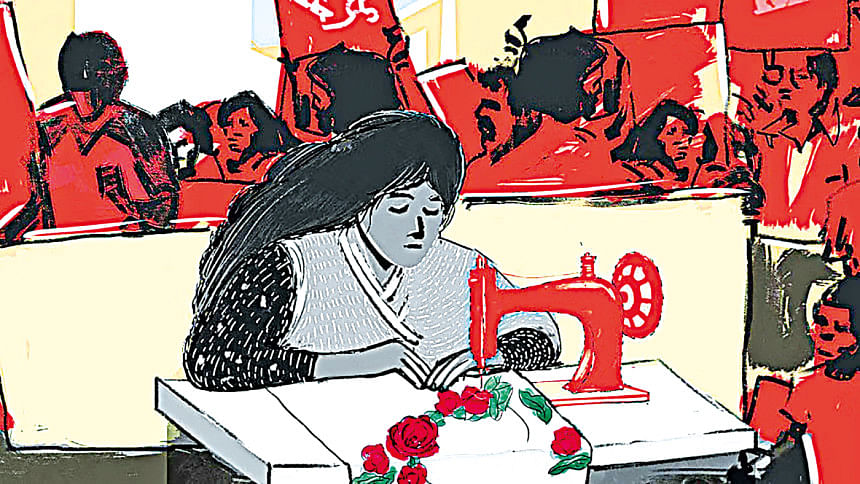Rights of our Women Workers

Women now make up around 42.7% of the formal workforce in Bangladesh, and all the morein the informal sector, according to Bangladesh Bureau of Statistics (BBS). In garments industries, which accounts for nearly 84% of Bangladesh's total exports, women represent about 55% of the workforce. Beyond clothing, women workers are also involved in informal domestic work, shrimp farms, and tea gardens, often with minimal legal protection.
Indeed, behind these encouraging statistics lie the harsher truth— women workers in our country face unsafe workplace condition. In fact, a 2022 study by the Bangladesh Institute of Labour Studies (BILS) reported that nearly 40% of female garment workers encounter some form of verbal, physical, or sexual harassment at work. Moreover, essential rights such as maternity leave are often denied, especially in smaller or subcontracted factories operating beyond the regulatory radar.
Furthermore, wage inequality is pervasive across different parts of Bangladesh. For instance, in the Rangpur district, female agricultural workers were reported to receive only half the wages paid to male workers despite working the same hours: while men were paid 180-300 BDT per day, women workers received only 90-150 BDT, despite legislation mandating equal pay. The lack of female representation in trade unions further escalates the crisis. Interestingly, although the majority of workers across many industries are women, they are still underrepresented in leadership positions, limiting their ability to advocate for safer workplaces and fairer wages.
Theoretically, Bangladesh's labour laws provide some protections. The Labour Act 2006, for instance, addresses important issues, such as workplace safety, maternity benefits, safeguards against wrongful termination, etc. Additionally, Bangladesh has ratified several important ILO conventions, such as Convention 111— Discrimination (Employment and Occupation) Convention 1958, and Convention 87— Freedom of Association and Protection of the Right to Organise Convention 1948. However, there is still a huge discrepancy between rights as they exist on paper and those that are exercised in practice.
Labour inspections are irregular, and enforcement measures are inadequate. Female workers in many factories, especially those in the informal sector, are not even aware of their legal rights. Even when they are, they are afraid of reprisals, which keeps them from speaking up. Moreover, complaints mechanisms at the workplace are mostly not discreet.
Fortunately, women-led workers' organisations have brought in important structural reforms over time. Led by former garment workers, groups like the National Garment Workers Federation (NGWF) have fought tirelessly for labour rights, fair wages, and safer working conditions. Thousands of garment workers, many of whom are women, regularly demonstrate for higher wages and better working conditions. Although many demands are still unfulfilled, their activism have resulted in several changes within the overall system.
In a promising development, the Labour Reform Commission of Bangladesh has recently submitted its report to the interim government, bringing new hope for women workers across the country. This report outlines extensive reform proposals aimed at improving the legal framework, including a specific focus on gender equality in the workplace. As party to ILO conventions, Convention on the Elimination of all forms of Discrimination against Women, and an array of other human rights instruments, Bangladesh is obligated to uphold inclusive labour protections, and it must be held accountable for not meeting these commitments.
Kohinoor Akter, Law student, American International University–Bangladesh (AIUB).

 For all latest news, follow The Daily Star's Google News channel.
For all latest news, follow The Daily Star's Google News channel. 



Comments